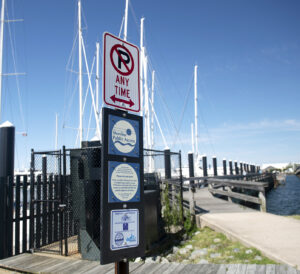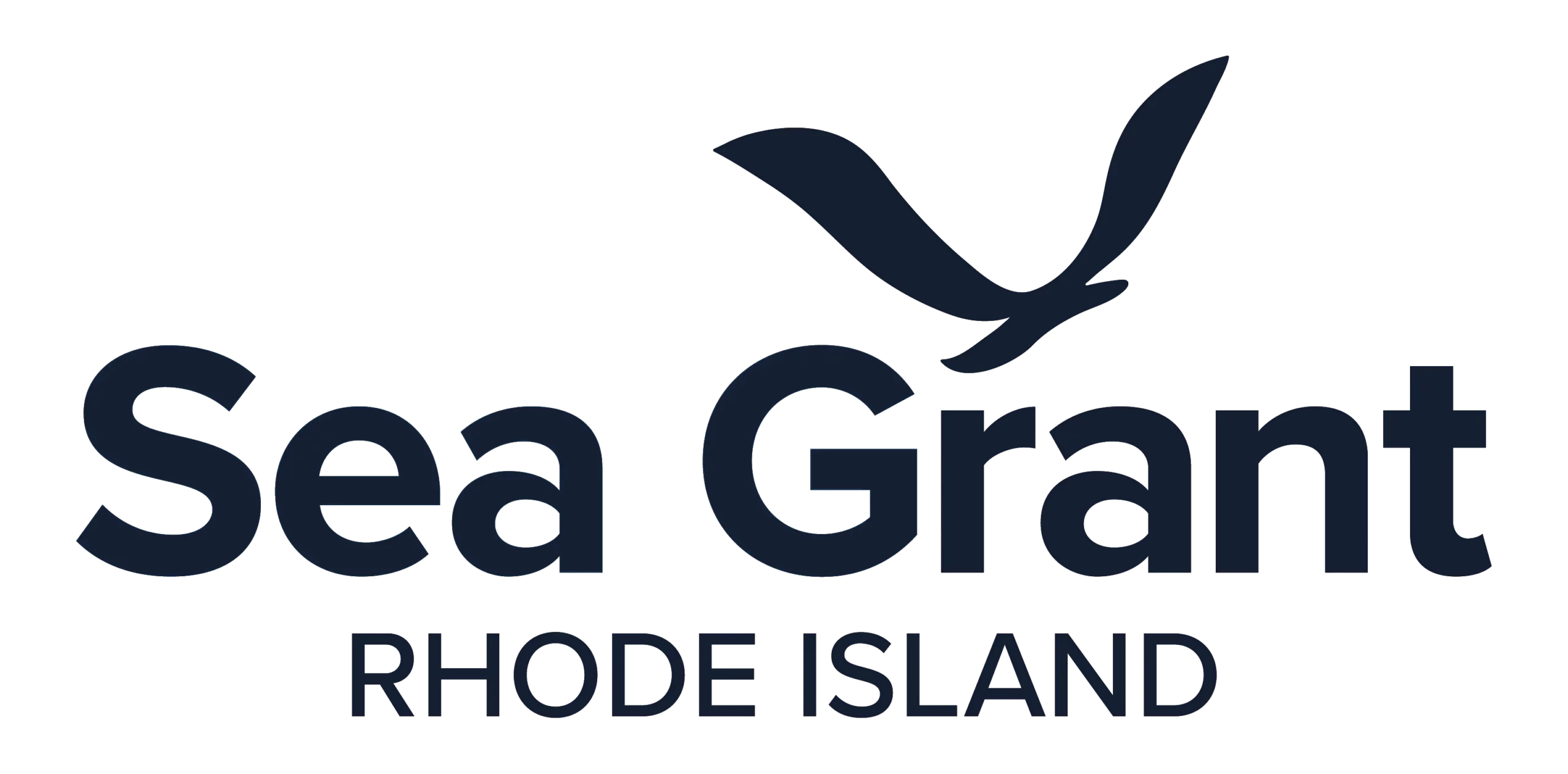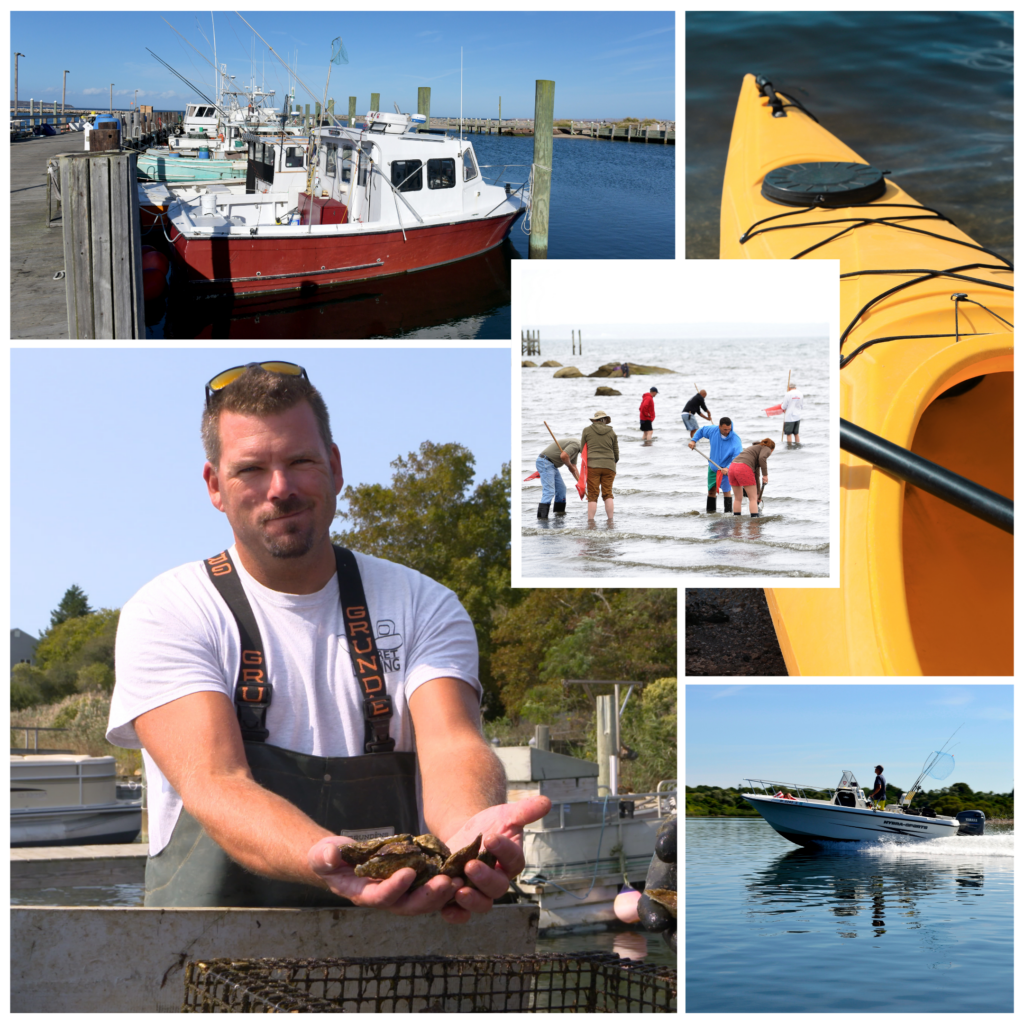Conflicts, lack of shoreline access, limit cooperative use of marine spaces
The idea that different marine businesses can share space, infrastructure, and resources has been touted as a way to find mutual benefits and reduce use conflicts. Often the vision is for platforms like offshore wind turbines to serve as staging areas for aquaculture farms or infrastructure for environmental data collection.
Recognizing an increase in uses of Rhode Island’s coastal and offshore waters that could lead to conflict, David Bidwell, URI Professor of Marine Affairs, wanted to understand what current and potential multi-use opportunities might exist locally. He and co-PIs Tiffany Smythe, visiting professor of marine affairs at URI, and Di Jin, senior scientist at the Woods Hole Oceanographic Institution Marine Policy Center, also wanted to focus on smaller marine operators who are often left out of multi-use conversations.
With funding from Rhode Island Sea Grant, they launched their project with a set of focus groups of small business owners from commercial and recreational fisheries, aquaculture, marine educators and tour boat operators, other recreational uses such as surfing and kayaking, and sailing and boating.

Lack of parking and other shoreline access issues are an obstacle to multi use of coastal waters in Rhode Island.
What they found, Bidwell says, was that “there wasn’t a lot of clamoring for, ‘Oh, we love multi-use, and here are these opportunities.’ It was mostly this idea of, ‘Well, we deal with multi-use because we have to.’”
Uses that had a long tradition of sharing space seemed to more or less amicably co-exist―for instance, sailing race organizers coordinated with commercial shipping so they could stay out of each other’s way.
Newer uses, and ones that involved more permanent structures in the water, however, were leading to conflicts.
”When you talk about things like offshore wind or aquaculture, where you have these static uses that are there, that sort of raises these values-based conflicts of ‘What is the marine environment for? Should you be able to basically privatize [marine] areas?’” Bidwell says.
“And then when you get lots of new players, there’s more opportunity for conflict. During the pandemic, a lot of newcomers took to the water, and they didn’t understand the rules of the road” such as which vessels have the right of way and where they needed to reduce their wake, he adds.
What surprised the researchers, though, was that there was an even bigger obstacle to multi-use: lack of shoreline access and facilities.
“What we found, particularly with an increase in on-water recreation, is that the demand for that limited supply of access points has just gone sort of sky high. And so there is this real feeling of this need for more multi-use access points and access facilities. If you want to expand multi-use, then having parking, bathrooms, changing rooms, all those sorts of things is really a limiting factor, and we never really thought of that,” Bidwell says.
“If you want to say, ‘Oh, let’s increase coastal tourism around aquaculture’ or other things, you need a place that you can safely get them on the water.”
At this point in their research, Bidwell says, it seems that expanding multi-use opportunities in Rhode Island for small businesses is “going to require a real effort from the policy makers to make that actually happen.”
Work on the project will continue into the fall with a second round of focus groups intended to bring the small operators in with other interests, such as larger operators or resource managers, to talk about potential areas of future multi-use.
For more information on this and other Rhode Island Sea Grant-funded research, visit https://seagrant.gso.uri.edu/research/. This project is part of the 2022-2024 research portfolio.

